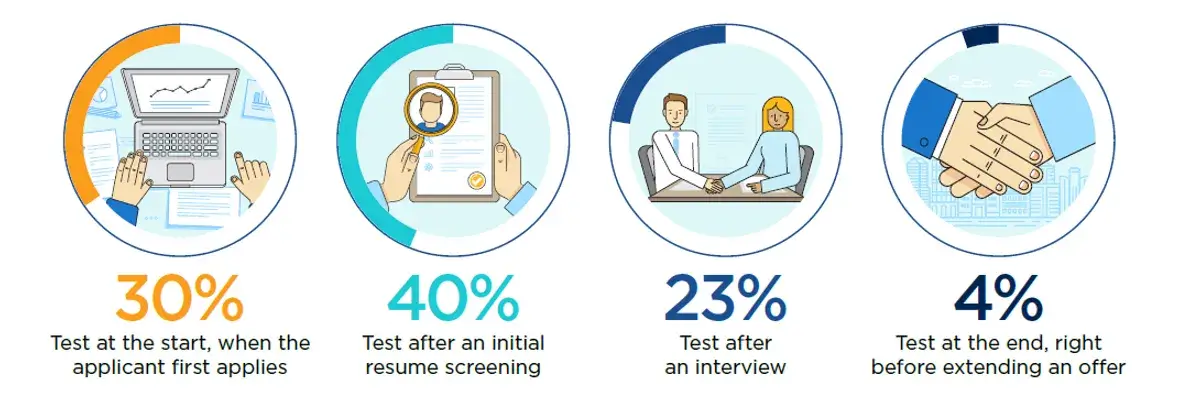Pre-employment tests are flexible – they can be administered at just about any stage in your hiring funnel. There’s no single, one-size-fits-all strategy for when to administer tests to candidates. It really depends on where your organization will get the most value out of the predictive information that pre-employment tests provide.
In a recent survey of hiring professionals who use pre-employment tests, we found that companies are choosing to administer tests at just about every stage of the hiring process:

30% of companies test their candidates up front when they first apply; 40% test their candidates after an initial resume screening; 23% test candidates after an interview; and 4% test candidates at the end of the process, right before extending an offer. Some companies also chose to test candidates at multiple stages of the hiring process.
While employers are opting to test candidates across the entire hiring funnel, employers are significantly more likely to test earlier in the hiring process, either at the start or after an initial resume screening (70% total). This suggests that many companies use pre-employment tests in the information-gathering stage, as a way to make a more informed decision about who to invite to the next stage of the hiring process.
We typically recommend testing up front because, for the majority of employers, testing at the start of the process can help you filter through your candidates, especially if you have large applicant pools. This strategy can help you save time in the hiring process by streamlining your process for evaluating candidates. Testing up front also makes it possible to identify candidates who you may have overlooked based on their resume alone but who scored well on the assessments, enabling you to expand your candidate funnel.
Based on the survey results, fewer companies choose to administer tests at the end of the hiring process before extending an offer. Testing late in the process can be potentially risky, because you may feel strongly about one or two candidates only to find that they score very poorly on the assessments, leaving you with a difficult decision to either hire the candidates despite the new information or to restart the hiring process for more candidates.
Ultimately, companies can opt to administer assessments at any stage of the hiring process, and where you choose to administer those tests depends on your hiring goals. The results from this survey suggest that the majority of companies are finding value in administering pre-employment tests earlier in the hiring process to make more informed decisions about their candidates.
Want more data on how companies like yours are using pre-employment tests? Download the benchmark report.





